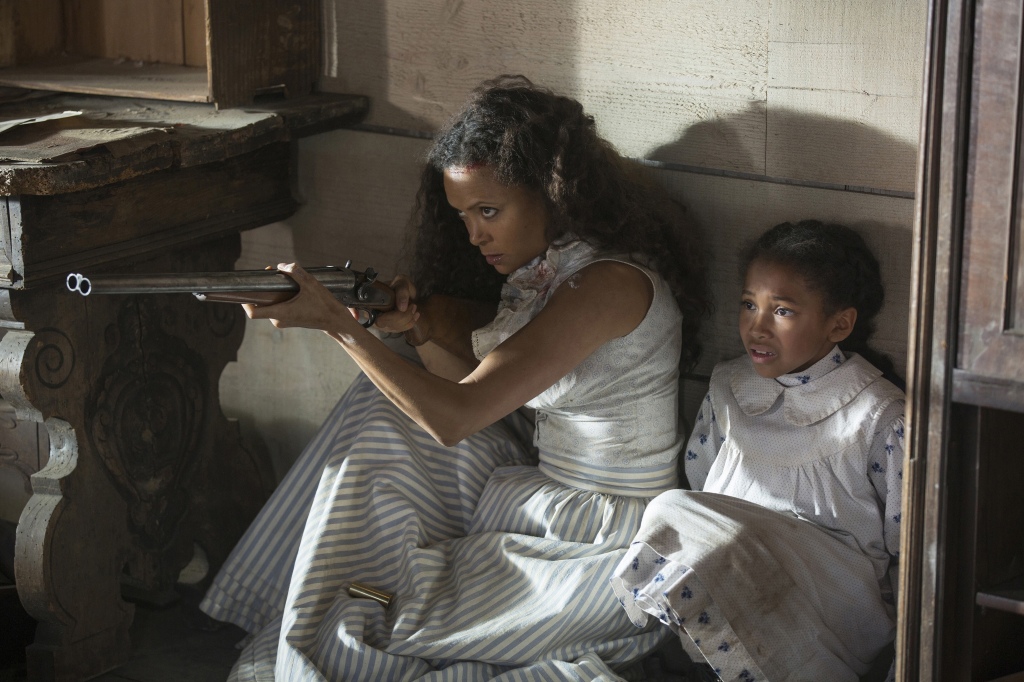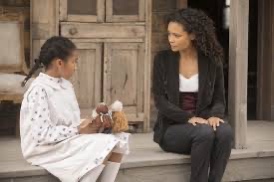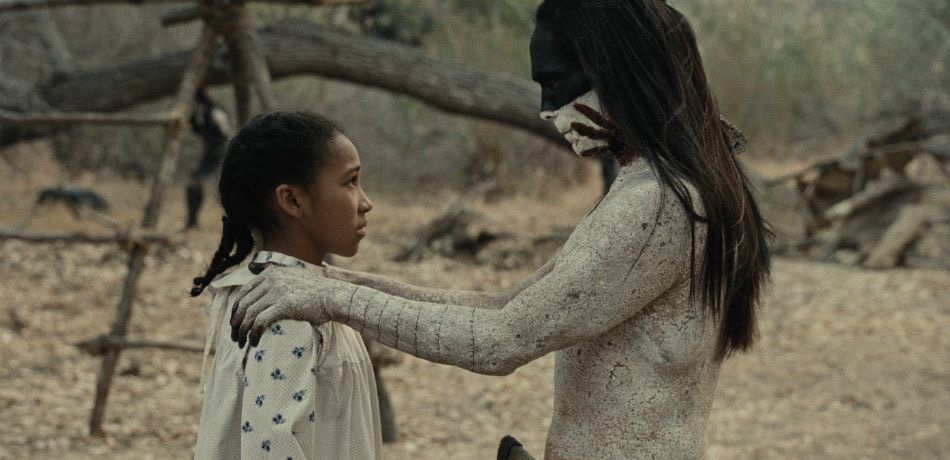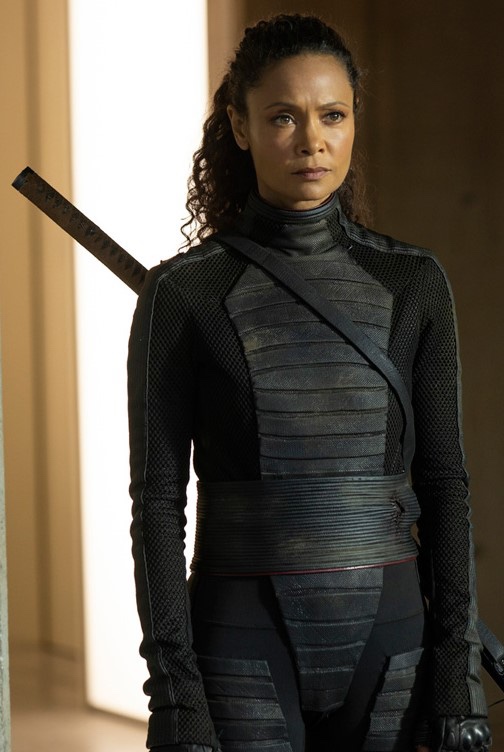
HBO’s Westworld is on Season 3. Due to the long timelines between production and release, audiences have had long breaks between seasons. So, I am rewatching Seasons 1 and 2.

Thandie Newton NOT best known for her role in the hypocritical liberal fantasy Crash, but for her cult performance in Gidlock’d (Directed by Courtney B. Vance), plays the role of Maeve, Madame of a western saloon.
Problem is Maeve is beginning to remember things. Other problem is Maeve is a robot so she is re-programmed every day and the data acquired from that day can be erased. Other other problem, folks are not erasing and replacing her narrative; it’s becoming layered. Disconnected. She is the first AI to recognize her consciousness (in season one). To have memories.
If you’ve never watch the show, Westworld is a place much grander than Disneyland and much much more twisted. Many of the storylines lie in the old west, which involves survivalism and we might consider baser-natures like sex and violence. All patrons of the park are able to literally do anything they want to the AI or hosts (as they’re known on the show). This is one reason why the AI are repaired and erased each day.
It controls the amount of trauma that the AI experiences. The audience can then transfer this notion to humans, that if we were able to control or erase our memories we would be able to manage them and release our attachments to the past. Living each day as if it were new and full of possibilities.
But Maeve’s possibilities are limited to the narrative that the story makers created for her. The gods of the coded program. She comes to realize that her memories are from a previous storyline and within the storyline is her cornerstone. The show defines a cornerstone as the conflict within a characters narrative that influences their motivations. Again, all character cornerstones are traumas. Maeve’s cornerstone is the loss of her daughter.

The AI’s trauma is their motivation for exercising free will. Maeve takes her quest to find her daughter into the second season. Maeve was replaced as the mother in her original storyline, so she learns her daughter was not alone. Or lost. She had a deep connection to having been a mother and this was her drive to seek out this child. But the narrative the daughter lives in remains the same. The Ghost Nation rides in and takes her with them. The Lakota warrior tells Maeve that they are on the same path and she should come with them, but she refuses. It repeats that she is losing her daughter without an understanding of why.

The truth of this encounter becomes more clear through Akecheta’s story (character pictured above right) in Season 2, Episode 8 “Kiksuya”. However, their collective journey plays out bringing the two groups together as allies and Maeve’s daughter is now protected. The hope that built inside this mother came to fruition through sacrificial actions, meaning both were somehow safe but they could not be together.

So what motivates Maeve from here on out. There are a lot of entry points. She’s a Black woman who can do almost anything. She literally never gives up, noted by the hundreds of times she killed herself in order to learn more about “the gods” and “the afterlife”. She was traveling on her own version of the astral plane. She’s a super hero. She speaks all languages.

Why would her daughter continue to be her motivation knowing she was a storyline and also knowing she is safer where she is (to a degree)?
It is easy to see how we as humans hold onto particular traumas and build our lives around them. Some of us even choose occupations that give the possibility of fixing these traumas, so that other people don’t have to experience them. Does the picture become larger once we have healed ourselves and come to terms with the truth? What is the true nature of our experiences and what have we done to address them? Do we recognize these external interactions develop internal responses? Under what circumstances do we let them go?

But just because the narrative written for her dictated that her daughter now had a new mother does not mean that Maeve was never her mother. Diving deeper into this, the audience might be able to scratch the surface of what family means. Maeve’s best memory was raising her daughter, and her worst was her abduction.
This is not the only character to have family be used as an anchor to their trauma. What often happens with female characters, especially ones that are written to be strong and resilient, is they become secondary and disposable as opposed to male protagonists. Maybe the writers didn’t want Maeve’s cornerstone to simply be surviving as a lone Black woman in the Wild Wild West, with the backstory of being stripped of all known relations. Black hosts would be subject to forced sex and violence scenarios specific to who they are, which is simply the history of Black bodies in any world in which they live.
Going from mother to whore overnight. With a superficial wipe, downloaded new narrative, costume and setting. Watching shootouts everyday. And starting over in the same place.
